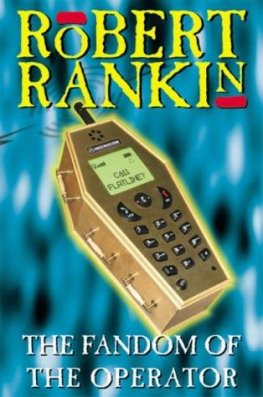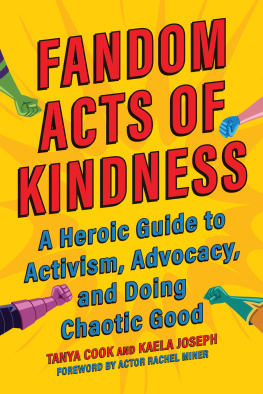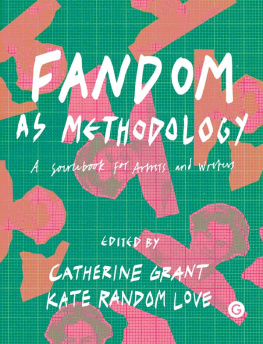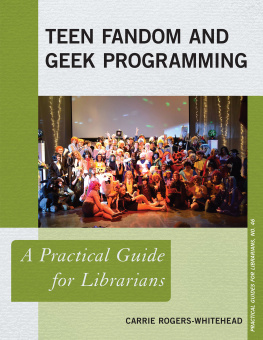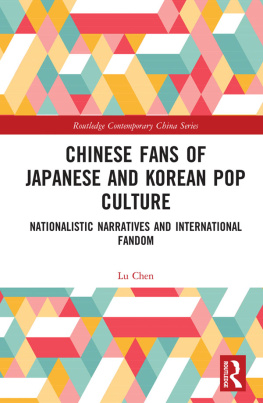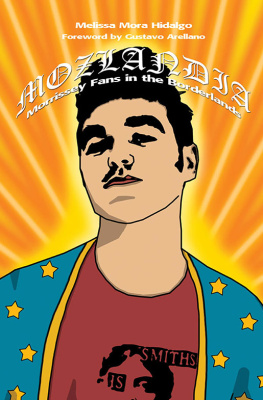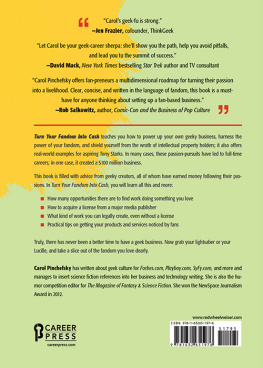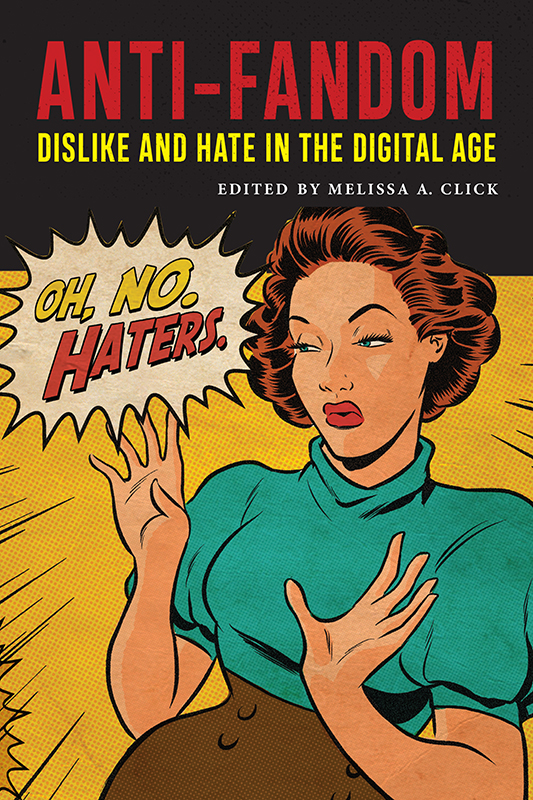
ANTI-FANDOM
POSTMILLENNIAL POP
General Editors: Karen Tongson and Henry Jenkins
Puro Arte: Filipinos on the Stages of Empire
Lucy Mae San Pablo Burns
Spreadable Media: Creating Value and Meaning in a Networked Culture
Henry Jenkins, Sam Ford, and Joshua Green
Media Franchising: Creative License and Collaboration in the Culture Industries
Derek Johnson
Your Ad Here: The Cool Sell of Guerrilla Marketing
Michael Serazio
Looking for Leroy: Illegible Black Masculinities
Mark Anthony Neal
From Bombay to Bollywood: The Making of a Global Media Industry
Aswin Punathambekar
A Race So Different: Performance and Law in Asian America
Joshua Takano Chambers-Letson
Surveillance Cinema
By Catherine Zimmer
Modernitys Ear: Listening to Race and Gender in World Music
Roshanak Kheshti
The New Mutants: Superheroes and the Radical Imagination of American Comics
Ramzi Fawaz
Restricted Access: Media, Disability, and the Politics of Participation
Elizabeth Ellcessor
The Sonic Color-Line: Race and the Cultural Politics of Listening
Jennifer Lynn Stoever
Diversin: Play and Popular Culture in Cuban America
Albert Sergio Laguna
Antisocial Media: Anxious Labor in the Digital Economy
Greg Goldberg
Open TV: Innovation beyond Hollywood and the Rise of Web Television
Aymar Jean Christian
More Than Meets the Eye: Special Effects and the Fantastic Transmedia Franchise
Bob Rehak
Playing to the Crowd: Musicians, Audiences, and the Intimate Work of Connection
Nancy K. Baym
Old Futures: Speculative Fiction and Queer Possibility
Alexis Lothian
Anti-Fandom: Dislike and Hate in the Digital Age
Edited by Melissa A. Click
Anti-Fandom
Dislike and Hate in the Digital Age
Edited by Melissa A. Click

NEW YORK UNIVERSITY PRESS
New York
NEW YORK UNIVERSITY PRESS
New York
www.nyupress.org
2019 by New York University
All rights reserved
References to Internet websites (URLs) were accurate at the time of writing. Neither the author nor New York University Press is responsible for URLs that may have expired or changed since the manuscript was prepared.
Library of Congress Cataloging-in-Publication Data
Names: Click, Melissa A., 1971 editor.
Title: Anti-fandom : dislike and hate in the digital age / edited by Melissa A. Click.
Description: New York : New York University Press, [2019] | Series: Postmillennial pop | Includes bibliographical references and index.
Identifiers: LCCN 2018020937| ISBN 9781479805273 (cl : alk. paper) | ISBN 9781479851041 (pb : alk. paper)
Subjects: LCSH: CelebritiesPublic opinion. | Hate. | Social media. | Fans (Persons)Attitudes.
Classification: LCC HM 621 . A 57 2018 | DDC 302.23/1dc23
LC record available at https://lccn.loc.gov/2018020937
For Gary Marlin Click
I will always be your #1 fan
CONTENTS
Melissa A. Click
Jonathan Gray
Emma A. Jane
Anne Gilbert
Louisa Stein
Matt Hills
Cornel Sandvoss
Holly Willson Holladay and Melissa A. Click
Alfred L. Martin, Jr.
Michelle M. Rivera
Roberta Pearson
Richard McCulloch
Whitney Phillips
Bethan Jones
Bertha Chin
Rebecca Williams
Haters Gonna Hate
MELISSA A. CLICK
Cause the players gonna play, play, play, play, play
And the haters gonna hate, hate, hate, hate, hate
Baby, Im just gonna shake, shake, shake, shake, shake
I shake it off, I shake it off
Taylor Swift
I twirl on them haters
Beyonc
It is commonplace today to see gushing fans lined up at movie premieres, waiting for a glimpse of their favorite stars. Fan art created as homages to adored characters and fan fiction containing will they or wont they? fantasies abound in our social media feeds. In the twenty-five years since the publication of media scholar Henry Jenkinss Textual Poachers (1992), fan studiesand the cultural value and visibility of fandomhave come a long way. One of fan studies enduring strengths is its focus on and valuation of affect, particularly its emphasis on fans positive feelings of like and love. Yet examined less frequently are the equally intense, but opposite, feelings of dislike and hatred.
What is the opposite of fandom? Disinterest. Dislike. Disgust. Hate. Anti-fandom. It is visible in many of the same spaces where you see fandom: in the long lines at Comic-Con, at sporting events, in numerous online forums like Twitter, YouTube, Tumblr, and Reddit (never read the comments sections), and in our politics. This is where fans and fandoms debate and discipline. This is where we love to hate.
Why are some texts and fans targets of hate and anti-fandom more than others? What roles do digital technologies play in the development and practice of anti-fandom? What do anti-fans and anti-fan practices reveal about a texts construction, appeal, and reception? In their book Fandom, media scholars Jonathan Gray, Cornel Sandvoss, and C. Lee Harrington suggest that studies that examine a spectrum of dislike, distaste, and hate in fan and anti-fan cultures constitute one of six directions of the third wave of fan studies, the current iteration of the field, which has matured since many of its foundational texts emerged in the early 1990s (2007b, 15). An indicator of fan studies maturity, they emphasize, is contemporary scholarships interest in changing the goalposts of inquiry and to broaden our analytic scope to a wide range of different audiences reflecting fandoms growing cultural currency (2007b, 8). Demonstrating the possibilities and contributions of anti-fan scholarship, Fandom includes essays on dislike and anti-fandom, covering a range of topics from celebrity (Click 2007; Sconce 2007) and sports (Theodoropoulou 2007) to interactions with industry (Johnson 2007) and in families (Alters 2007).
A smattering of articles on anti-fandom followed the publication of Gray, Sandvoss, and Harringtons collection, including among them explorations of anti-fan reactions to celebrity (Claessens and Van den Bulck 2014), cheerleading (Jane 2014), online trolling (Phillips 2015), music (Giuffre 2014), professional wrestling (Hill 2015), television (Gray and Murray 2016), and the vampire franchise, Twilight (Gilbert 2012; Hills 2012; Pinkowitz 2011; Strong 2011; Williams 2013). While this work, and the necessity of studying anti-fandom generally, has been enthusiastically received, anti-fan scholarship has progressed only slightly in the last few years, which suggests the area of study needs direction and motivation. This new collection of fifteen innovative and original chapters aims to do just that, by providing a framework for future study through theoretical and methodological exemplars that engage the many questions about anti-fandom that remain.
As the frequent citation in this book (and elsewhere) attests, the description of anti-fans as those who strongly dislike a given text or genre, considering it inane, stupid, morally bankrupt and/or aesthetic drivel, put forth by Jonathan Gray (2003, 70) in New Audiences, New Textualities, has productively shaped scholarship on dislike, hate, and anti-fandom. Gray argues that the study of anti-fans (as well as non-fans) would help balance audience studies nearly exclusive focus on the study of fans, and he also argues that this overreliance on fan populations has stunted scholarly knowledge of textuality, affective involvement, aesthetic and cultural value, and the relationships between text and audience. Although a number of the chapters in this collection, including Grays new essay, endeavor to rework the atomic model Gray originally proposed (where fans/protons, anti-fans/electrons, and non-fans/positrons circulate differently around the text/atom), it has nonetheless served as a fruitful starting point for conceptualizing fans, anti-fans, and non-fans engagement with media texts.


